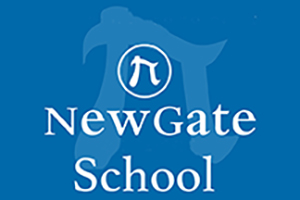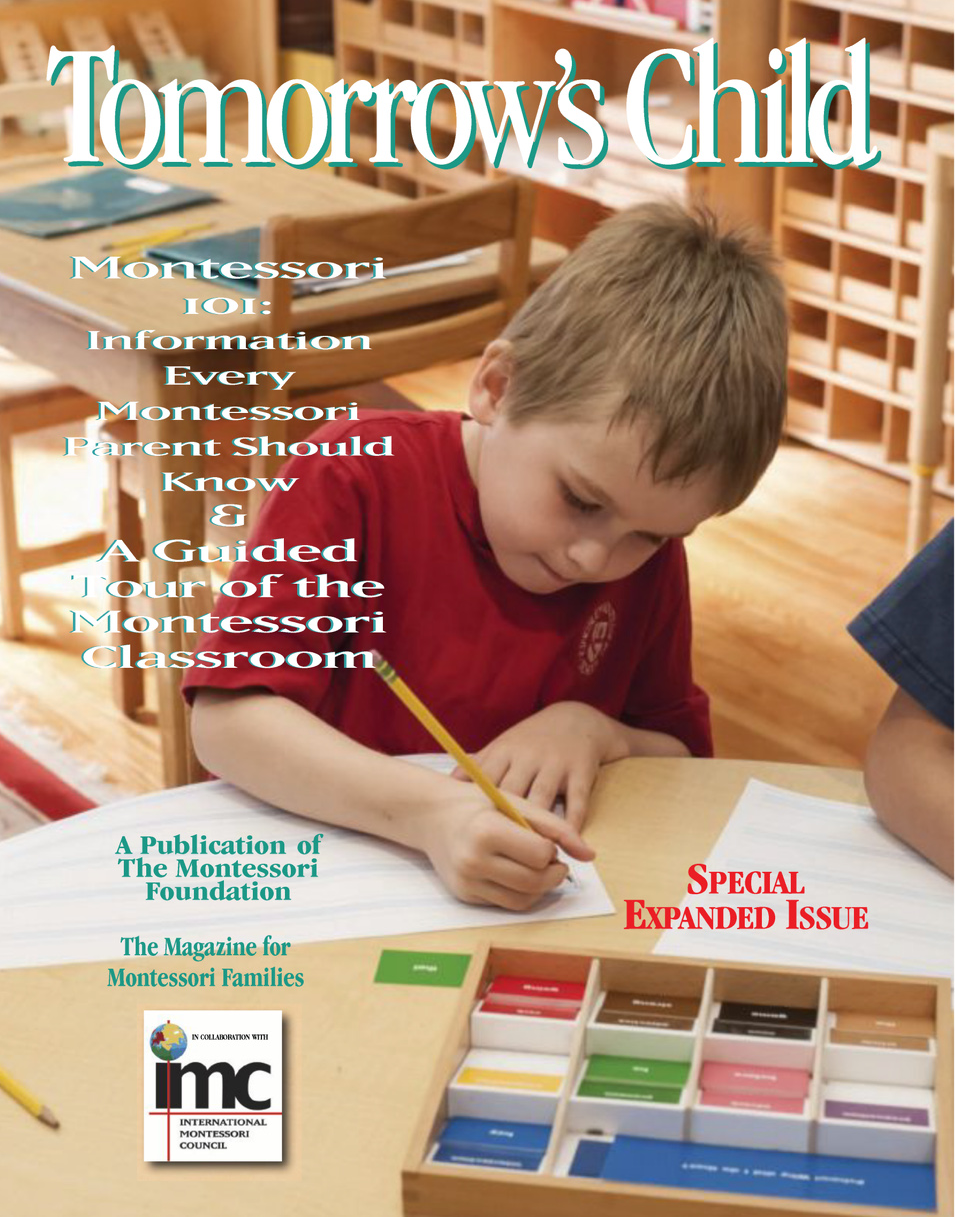Our Elementary Montessori Classes
Ages 6 to 9 and 9 to 12To inspire academic excellence;
nurture curiosity, creativity, and imagination;
and awaken the human spirit.
MARIA MONTESSORI
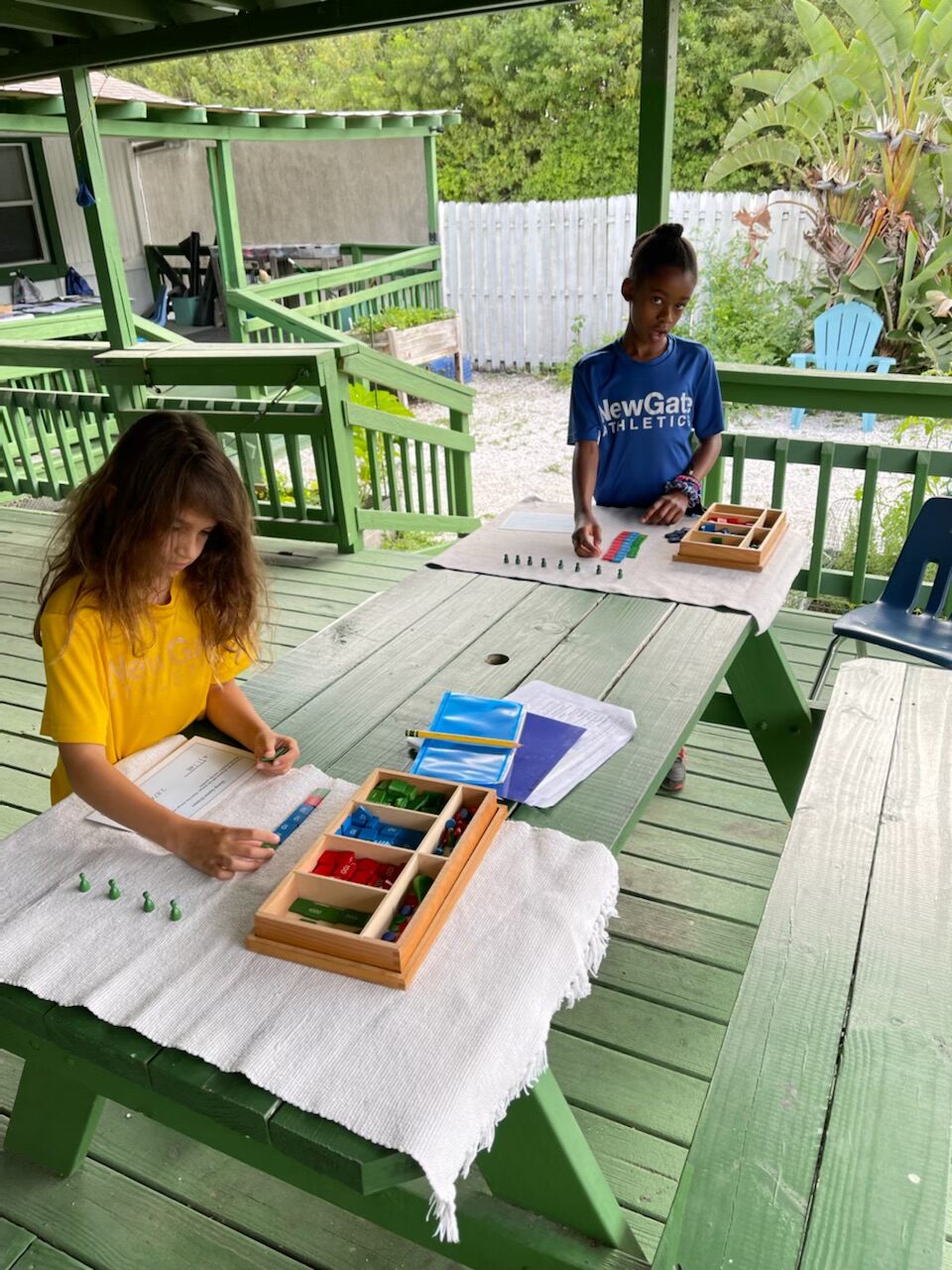
Inspiring children to hard work and academic excellence
Montessori is one of the most sophisticated pre-collegiate programs available anywhere in North America. It has been described as the ultimate gifted and talented program. But this doesn’t tell the whole story. What makes Montessori special is its ability to nurture talent without needless competition and stress. In a nutshell, Montessori children never lose the joy of learning.
Montessori is first and foremost concerned with a child’s character and emotional development, rather than academics for grades and test scores alone. We are attempting to inspire children toward academic excellence and nurture the curiosity, creativity, and imagination hidden within every human being.
Sometimes parents worry that Montessori will not prepare their children for the “real world.” Hearing that we do not give children letter grades (at least until high school), assign hours of nightly homework, give children weekly tests, or expect students to compete for the highest rank in the class, they wonder if we’ve lost our minds!
Montessori elementary education is distinctly different.
Our Elementary Montessori Community
Our Elementary Montessori Program is divided into two levels: Lower Elementary (6 to 9-year-olds) and Upper Elementary (9 to 12-year-olds). Each level is a multi-age community where students collaborate with others of different ages and abilities, learning to accomplish a goal cooperatively. This process encourages the child to contribute ideas, listen to others, and learn to compromise.
Elementary children have an immense appetite for knowledge; they begin to think abstractly and they have remarkable powers of imagination. The philosophy that underlies the Montessori elementary program, known as Cosmic Education, is designed to help individuals search for their place in the universe and to recognize their relationship to other living things.
Students experience abstract concepts through concrete experience and hands-on learning materials. Critical thinking skills are enhanced as students “discover” and articulate these concepts for themselves. Ours is an integrated and academically challenging program that meets the child’s changing developmental needs from year to year.
Montessori children never lose the joy of learning.
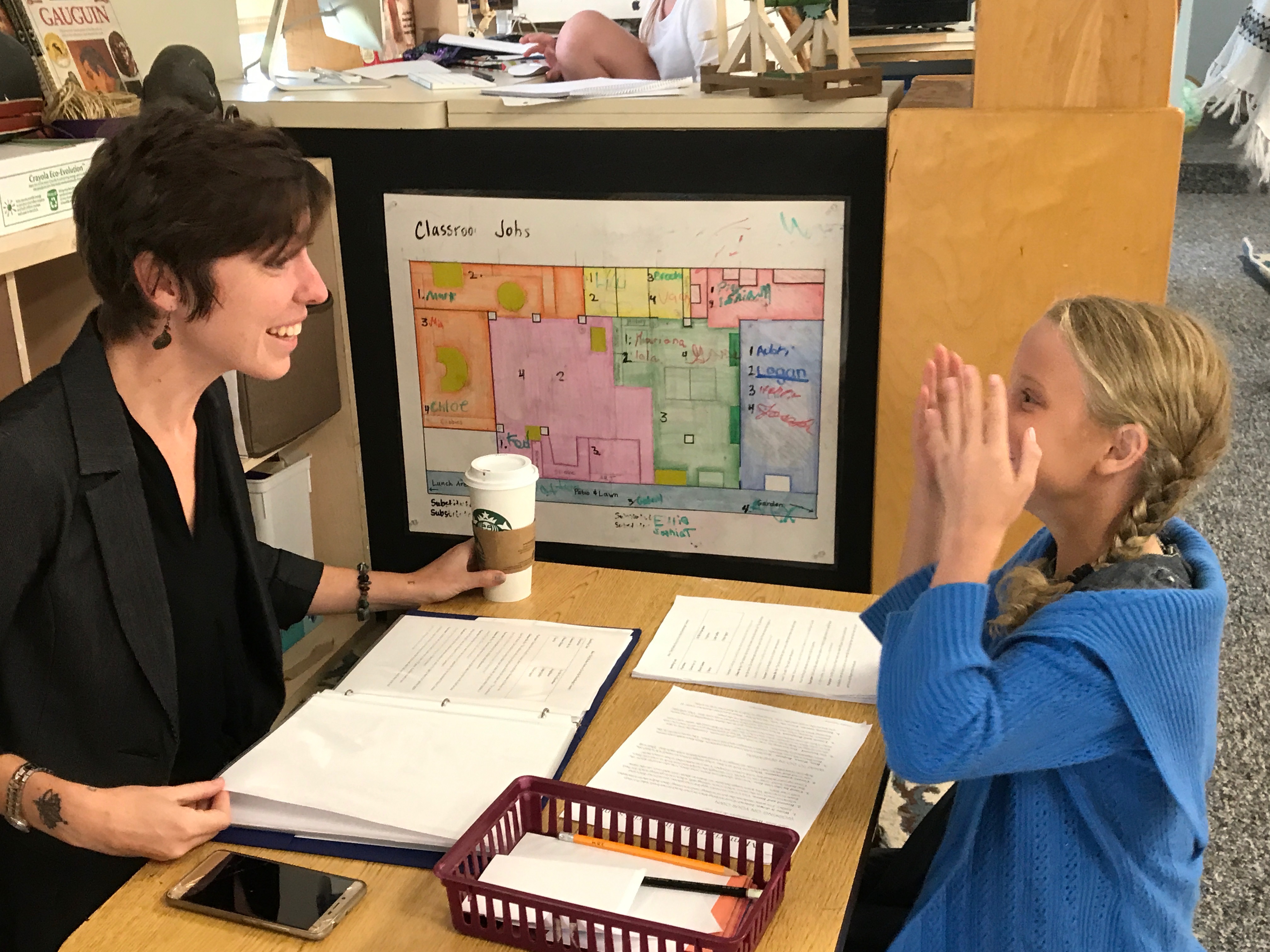
Elementary Classes are Multi-Age Group Communities
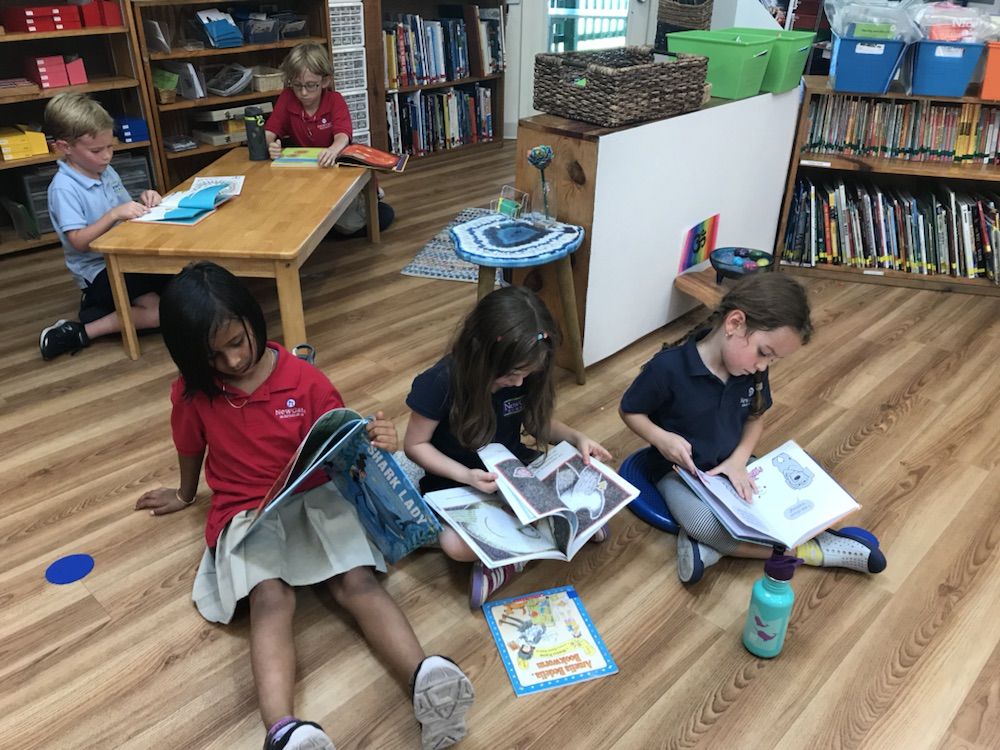
Elementary Montessori classes continue to bring children of different age levels together. Classes span three age/grade levels, with the common divisions being ages 6 to 9 (grades 1-3) and ages 9 to 12 (grades 4-6). Some schools may follow a somewhat different scheme of grouping their children.
There are many reasons why Montessori classes group children of several grade levels together:
Since Montessori allows children to progress through the curriculum at their own pace, there is no academic reason to group children according to one grade level.
In a mixed-age class, children can always find peers who are working at their current level.
To accommodate the needs of individual learners, Montessori classrooms include a curriculum to cover the entire span of interests and abilities up through the oldest and most accelerated students in the class. This creates a highly enriched learning environment.
In multi-level classrooms, younger children are stimulated by the interesting work in which the older ones are engaged
- At the same time, in multi-level classrooms, older students serve as tutors and role models for the younger ones, which helps them in their own mastery (we learn things best of all when we teach them to someone else) and leaves them with a tremendous sense of pride.
- By working with children for three years, teachers get to know them extremely well.
- And, finally, there is a strong sense of continuity in the elementary Montessori class because two-thirds of the children return each September for either their second or third year with the same teacher(s). Most of the children know one another and understand the culture of the class. This makes it much easier to orient new children to the class.
Elementary Montessori Educators Serve As Mentors, Guides, and Friends
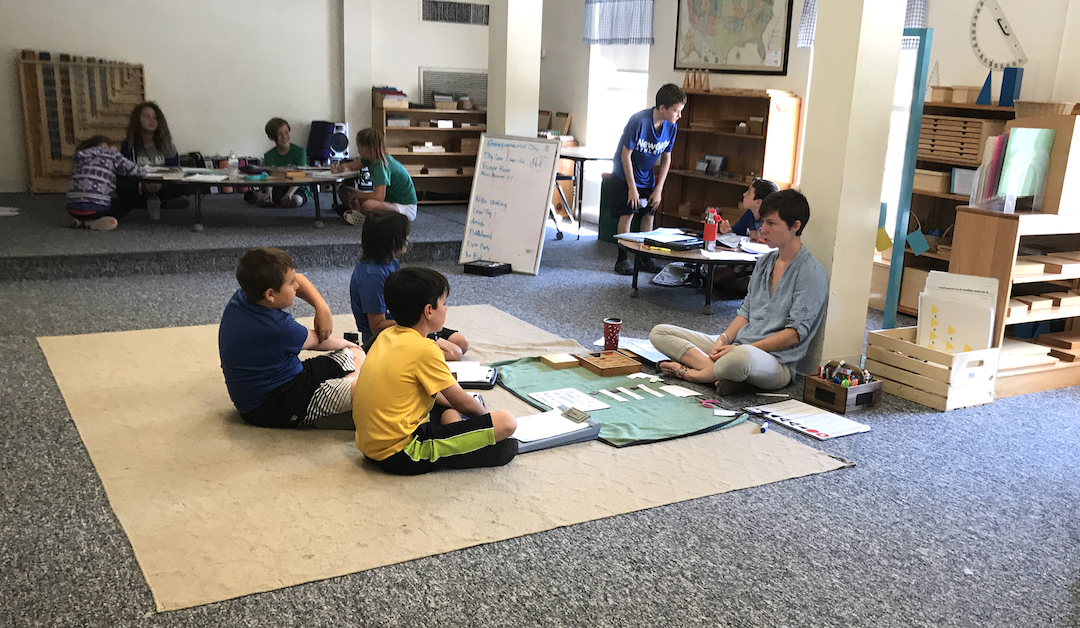
The best elementary Montessori teachers tend to be renaissance men and women; individuals who are equally interested in mathematics, the sciences, the arts, architecture, literature, poetry, psychology, economics, technology, and philosophy. Elementary Montessori teachers are generalists, guides, rather than subject matter instructor. They provide a blend of structure to ensure that the “basics” are mastered while encouraging and guiding the children as they explore topics and ideas that capture their imagination.
The elementary Montessori curriculum is very demanding and requires teachers to have a broad and thorough education of their own. With lessons that range from the history of mathematics to the physics of flight, mineralogy, chemistry, algebra, geometry, linguistics, and literature, to name just a few, the average teacher would be lost.
But beyond this, elementary Montessori educators need patience, understanding, respect, enthusiasm, and a profound ability to inspire a sense of wonder and imagination. Such teachers are very rare but absolutely magical!
Becoming an elementary Montessori teacher requires a full year of graduate study and thousands of hours of hard work to gather or create the curriculum materials that constitute a prepared elementary Montessori environment.
The Montessori Materials and the Passage To Abstraction

At the elementary level, learning continues to be a hands-on experience, as students learn by trial, error, and discovery.
The advanced elementary Montessori materials move on to more complex and abstract concepts in mathematics, geometry, and pre-algebra. The goal is to lead students away from a dependency on concrete models that visually represent abstract concepts towards the ability to solve problems with pen and paper alone. Part of this is made possible by the growing child’s brain’s ability to grasp abstractions, but it has been greatly enhanced over the years by countless hours of work with the concrete materials that made the abstract real and helped him visualize the abstraction.
Similar hands-on materials help students understand grammar, sentence analysis, geographical facts, and concepts in science.
Learning How to Learn
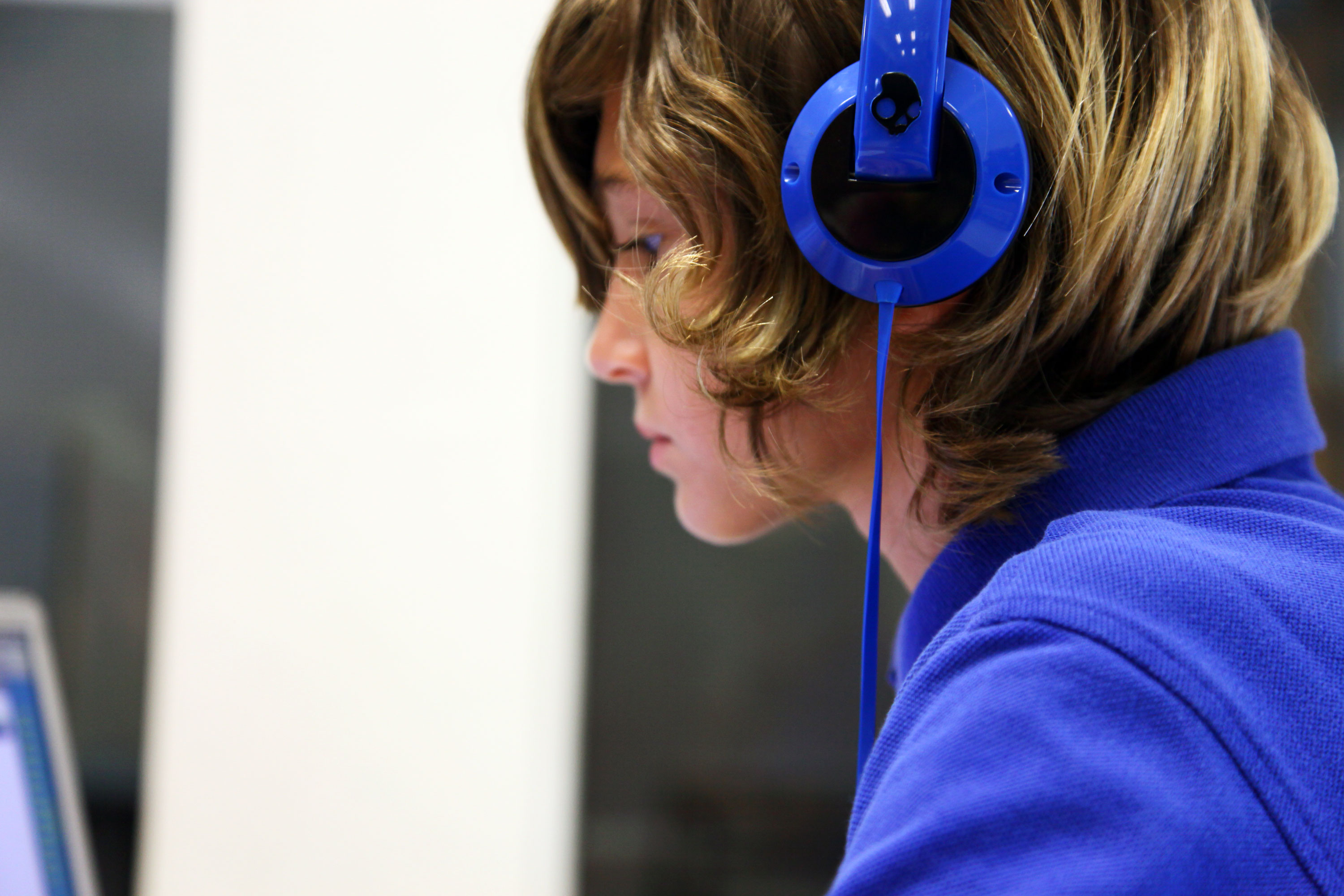
At the elementary level, Montessori students learn to think for themselves. They are encouraged to do their own research, analyze what they have found, and come to their own conclusions. Montessori teaches students to think, not simply to memorize, feedback, and forget. They literally learn how to learn, discovering that the process of learning can, and should, be as natural as breathing! Students become fully engaged in the learning process.
Rather than present students with all the “right answers,” Montessori teachers ask the “right questions,” and challenge them to find new solutions or discover the answers on their own. This is yet another element of the Montessori program that prepares children to succeed in the real world of ideas, enterprise, and challenging perspectives. Learning the right answers may get children through a test. Learning how to learn will get them through life!
Community Service
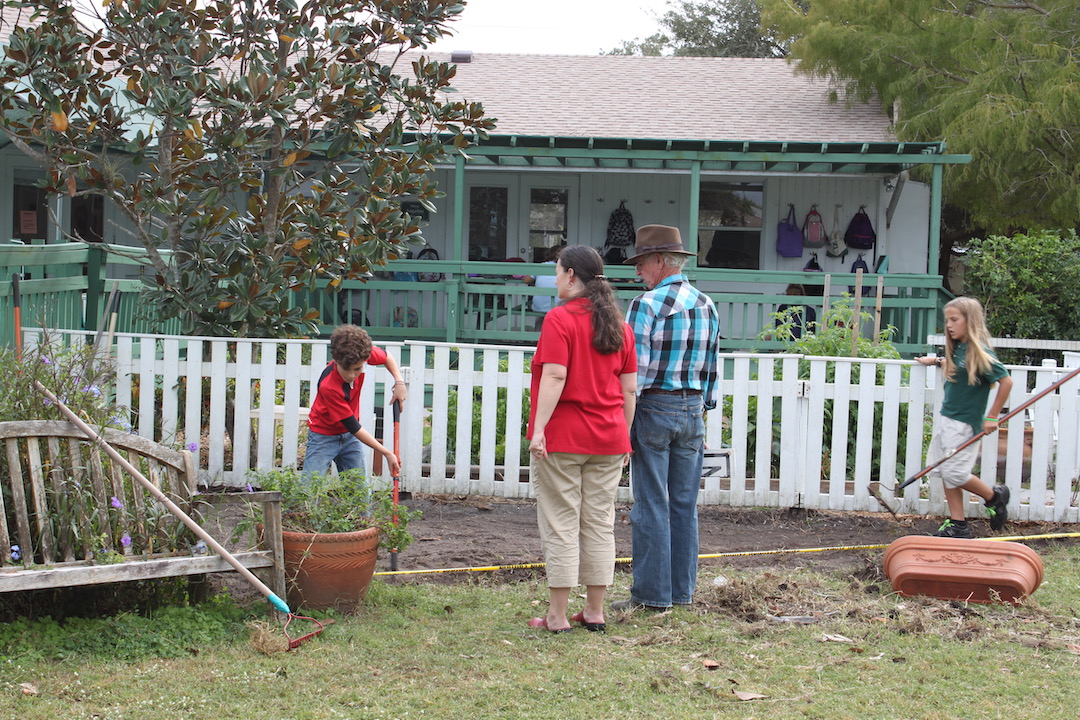
Children must be inspired to contribute to the betterment of the world. They often begin with projects that care for the environment, planting trees and flowers, composting garbage, controlling erosion around the campus, recycling, and cleaning up litter and debris in the local community. It is quite common for elementary classes to adopt an acre of rainforest in Costa Rica or work to support an environmental organization, such as the Wildlife Federation.
They will normally progress to projects that provide direct help to the needy. Younger children commonly collect canned goods, clothing, and toys for the homeless or needy families and their children. As they are ready, most Montessori schools will take children out into the community. Some classes spend an afternoon every week visiting a nursing home, building friendships with older people. In some schools, older elementary children volunteer in food kitchens or help care for small children in shelters for battered women. Some classes prepare lunches, which they deliver to the homeless.
As they reach the upper elementary class, it is common to find Montessori children quite concerned about issues of social justice and human rights. The rights of the poor, homeless, and hungry are often of real concern. Some children will begin to explore the possibilities of supporting causes that are meaningful to them.
Montessori schools strive to create global understanding
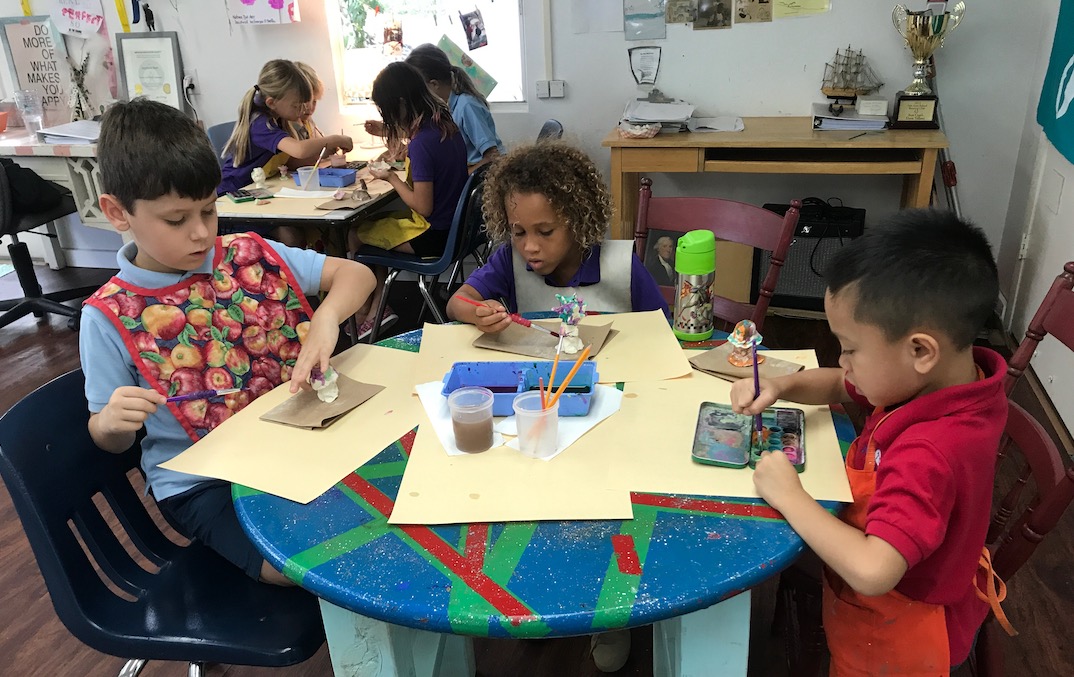
- They tend to attract teachers from all over the world.
- It is normal to find an international student body in a Montessori school anywhere in the world.
- Montessori schools normally teach at least one foreign language, and commonly offer intensive programs in several languages.
- World geography, international cultural studies, and world history are central to the elementary Montessori curriculum.
- Elementary Montessori students begin to understand the global economy.
- As more and more Montessori schools are developing strong upper elementary and middle school programs, they are beginning to sponsor travel-study programs. Some participate in the Montessori Model United Nations or even foreign exchange programs.
Is Montessori opposed to competition?
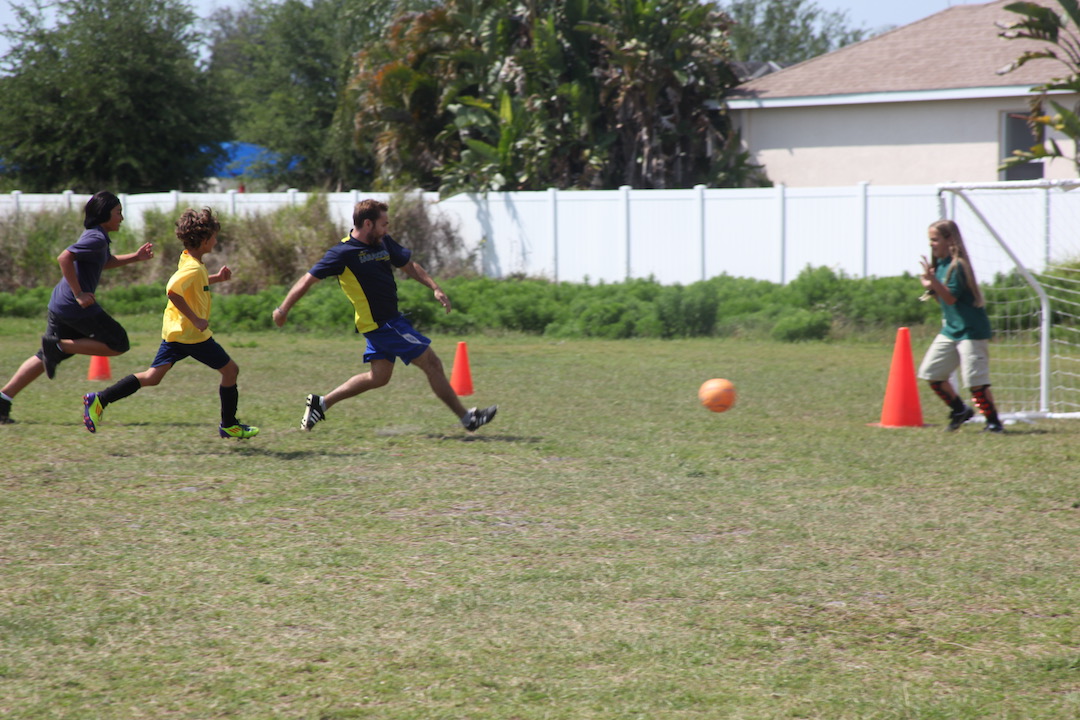
No. Dr. Montessori simply observed that competition is an ineffective tool to motivate children to learn and work hard in school.
Traditionally schools challenge students to compete with each other for grades, class rankings, and special awards. For example, tests are graded on a curve developed from the permanent of the students in that class. Students are constantly measured against their classmates, rather than considered for their individual progress.
In Montessori schools, students learn to collaborate with each other rather than mindlessly compete. Students discover their own innate abilities and develop a strong sense of independence, self-confidence, and self-discipline. In an atmosphere in which children learn at their own pace and compete only against themselves, they learn to not be afraid of making mistakes. They quickly find that few things in life come easily, and they can try again without fear of embarrassment.
Dr. Montessori argued that for an education to profoundly touch a child’s heart and mind, he must be learning because he is curious and interested, not simply to earn the highest grade in the class.
Montessori children compete with each other every day, both in class and on the playground. Dr. Montessori, herself an extraordinary student and a very high achiever, was never opposed to competition on principle. Her objection was to using competition to create an artificial motivation to get students to achieve.
Montessori schools allow competition to evolve naturally among children, without adult interference unless the children begin to show poor sportsmanship. The key is the child’s voluntary decision to compete, rather than having it imposed on him by the school.
Homework, tests, grades, and competition
Many parents have heard that Montessori schools do not believe in homework, grades, and tests. This is a misunderstanding of what we do and believe.
Because Montessori believes in individually paced academic progress and encourages children to explore their interests, rather than simply complete work assigned by their teachers, we don’t assign grades or rank students within each class according to their achievement.
Whenever students voluntarily decide to learn something, they tend to engage in their work with a passion and attention that few students will ever invest in tasks that have been assigned.
Providing structure – setting high but individually tailored expectations
This doesn’t mean that they can do whatever they want academically, possibly electing to learn to read and possibly not. Montessori students have to live within a cultural context, which for us involves the mastery of skills and knowledge that we consider basic. Montessori gives students the opportunity to choose a large degree of what they investigate and learn, as well as the ability to set their own schedule during class time
Montessori children normally work with a written study plan for the day or week. It lists the basic tasks that they need to complete while allowing them to decide how long to spend on each and what order they would like to follow. Beyond these basic individually tailored assignments, children explore topics that capture their interest and imagination and share them with their classmates.
Montessori children usually don’t think of our assessment techniques as tests so much as challenges. Most elementary teachers will give their students informal individual oral exams or have the children demonstrate what they have learned by either teaching a lesson to another child or by giving a formal presentation. The children both take and prepare their own written tests to administer to their friends.
Standardized tests
Montessori educators frequently argue that standardized testing is inaccurate, misleading, and stressful for children. Further, they argue that are not necessary, since any good teacher who works with the same children for three years and carefully observes their work, knows far more about their progress than any paper and pencil test can reveal.
However, in our culture, test-taking skills are just another practical life lesson that children need to master.
Most Montessori schools regularly give students quizzes on the concepts and skills that they have been studying, and many schools use standardized tests, either annually or every other year with students over first-grade.
Standardized tests do not offer a terribly accurate measure of a child’s basic skills and knowledge. There are many issues, including how well a given test captures a sense of someone’s true skills and knowledge. Any given testing session can be profoundly affected by the student’s emotional state, attitude, and health, and to a large degree, what they really demonstrate is how well a student knows how to take this kind of test.
The problem with standardized tests is that they have often been misunderstood and misinterpreted in other schools, rather than as a means to challenge students to demonstrate skills and knowledge. When tests are used as a feedback loop, at times indicating that a student needs a new lesson and more practice, instead of a mark of shame and failure, then they can be quite useful.
Children will face standardized tests throughout their education, and they certainly need to develop good test-taking skills.
Homework
Homework in an elementary Montessori class rarely involves busywork assignments, but rather extensions and enrichment of the curriculum. Some classes will allow the children to freely pursue projects that interest them at home, while others prefer to give children a number of optional assignments or challenges. In either case, the Montessori version of homework will rarely be boring and will normally challenge students to think, explore, and pursue tangible projects that give them a sense of satisfaction.
Here are just a few examples of typical assignments:
- Plan and prepare dinner for your family typical of what the ancient Greeks might have eaten.
- Read together with your mother or father one of the books on the following list
- Visit a place of worship of a different faith than yours. Meet the rabbi, priest, or minister and learn as much as you can.
- Buy some stock a follow its course over time. Pretend that you have ten thousand dollars to invest.
- How many square feet of carpet would it take to cover your entire house? Convert this number into square yards. Call two carpet dealers. What kinds of carpet do they offer and what would it cost to carpet your house.
- Build a square model of the floor plan of your house out of cardboard, one floor at a time. Be as careful and exact as you can.
- Develop a pen pal in a Montessori school in another city in the USA or in another country.
- Prepare a list of all the things that you would like to do with your life: your career, cities that you would like to visit, mountains to climb, and things you would like to learn about.
- Build a model of the Parthenon, an aqueduct, or some other historical structure.
- Build a bridge out of popsicle sticks held together with carpenter’s glue that will span a three-foot chasm and support several bricks.
- Interview your grandparents about their childhood. Write a biography or share what you learn.
The elementary Montessori curriculum is organized into three elements:
- Mastery of Fundamental Skills and Basic Core Knowledge
A Rigorous European Curriculum: Montessori evolved out of the European tradition of academic excellence, and offers a rigorous course of study even in the elementary years. Elementary Montessori students explore the realm of mathematics, science and technology, the world of myth, great literature, history, world geography, civics, economics, anthropology, and the basic organization of human societies. Their studies cover the basics found in traditional curricula, such as the memorization of math facts, spelling lessons, and the study of vocabulary, grammar, sentence analysis, creative and expository writing, and library research skills.
Sometimes, because Montessori places so much emphasis on cultivating children’s sense of curiosity and wonder, parents may get the impression that students can simply do whatever they wish, avoiding subjects that they dislike. This is certainly not the case in any well-run class.
- Dr. Montessori’s “Great Lessons”:
The Great Lessons are five key areas of interconnected studies traditionally presented to all elementary Montessori students in the form of inspiring stories and related experiences and research projects.
The Cosmic Curriculum: The Great Lessons include the story of how the world came to be, the development of life on the Earth, the story of humankind, the development of language and writing, and the development of mathematics. They are intended to give children a “cosmic” perspective of the Earth and humanity’s (and their own) place within the cosmos.
Traditionally presented every year in the elementary class as an inspiration to new and older students alike, the lessons, studies, and projects surrounding each of the Great Lessons normally span many months and the questions that the children pose and their efforts to find the answers to their own questions may continue for many years.
- Individually Chosen Research:
Elementary students are encouraged to explore topics that capture their imagination. Most former Montessori students look back on this aspect of the elementary program with particular fondness in later years.
Montessori is a library research-based curriculum. Elementary Montessori students rarely use textbooks. The approach is largely based on library research, with children gathering information, assembling reports, teaching what they have learned to their fellows, and assembling portfolios and handmade books of their own.
Beginning by simply using an encyclopedia to find the answers to a list of questions prepared by their teachers, Montessori students are taught how to use reference materials, libraries, and even the Internet to gather information and uncover the facts. Their oral presentations and written research reports grow in sophistication and complexity every year.
Learning By Doing: Elementary Montessori students make their studies come alive through a host of hands-on projects and activities. For example, a small group of students who are interested in Greek mythology might build a model of ancient Athens, make and decorate their own Grecian vases to illustrate a particular story, prepare dioramas of a scene from mythology, or write and produce their own play for the rest of the class. It is quite common to find children constructing models of ancient buildings, or learning ancient skills, such as flaking flint to make stone tools.
Elementary Montessori Curriculum:
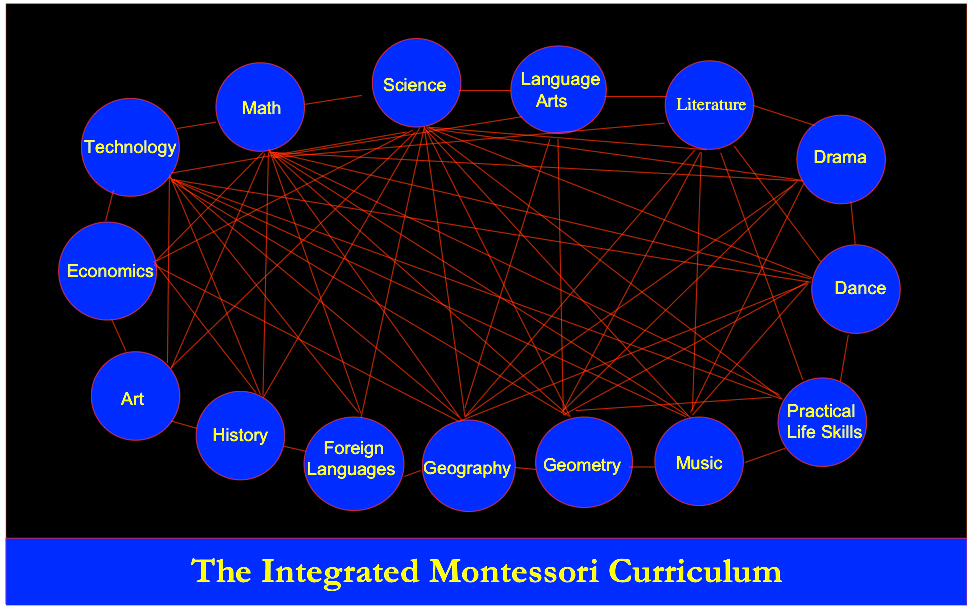
Mastery of Fundamental Skills and Basic Core Knowledge
An International Curriculum: Montessori evolved out of the European tradition of academic excellence, and offers a rigorous course of study even in the elementary years. Elementary Montessori students explore the realm of mathematics, science and technology, the world of myth, great literature, history, world geography, civics, economics, anthropology, and the basic organization of human societies. Their studies cover the basics found in traditional curricula, such as the memorization of math facts, spelling lessons, and the study of vocabulary, grammar, sentence analysis, creative and expository writing, and library research skills.
Sometimes, because Montessori places so much emphasis on cultivating children’s sense of curiosity and wonder, parents may get the impression that students can simply do whatever they wish, avoiding subjects that they dislike. This is certainly not the case in any well-run class.
Dr. Montessori’s “Great Lessons”:
The Great Lessons are five key areas of interconnected studies traditionally presented to all elementary Montessori students in the form of inspiring stories and related experiences and research projects.
The Cosmic Curriculum: The Great Lessons include the story of how the world came to be, the development of life on the Earth, the story of humankind, the development of language and writing, and the development of mathematics. They are intended to give children a “cosmic” perspective of the Earth and humanity’s (and their own) place within the cosmos.
Traditionally presented every year in the elementary class as an inspiration to new and older students alike, the lessons, studies, and projects surrounding each of the Great Lessons normally span many months and the questions that the children pose and their efforts to find the answers to their own questions may continue for many years.
Individually Chosen Research:
Elementary students are encouraged to explore topics that capture their imagination. Most former Montessori students look back on this aspect of the elementary program with particular fondness in later years.
Montessori is a library research-based curriculum. Elementary Montessori students rarely use textbooks. The approach is largely based on library research, with children gathering information, assembling reports, teaching what they have learned to their fellows, and assembling portfolios and handmade books of their own.
Beginning by simply using an encyclopedia to find the answers to a list of questions prepared by their teachers, Montessori students are taught how to use reference materials, libraries, and even the Internet to gather information and uncover the facts. Their oral presentations and written research reports grow in sophistication and complexity every year.
Learning By Doing: Elementary Montessori students make their studies come alive through a host of hands-on projects and activities. For example, a small group of students who are interested in Greek mythology might build a model of ancient Athens, make and decorate their own Grecian vases to illustrate a particular story, prepare dioramas of a scene from mythology, or write and produce their own play for the rest of the class. It is quite common to find children constructing models of ancient buildings, or learning ancient skills, such as flaking flint to make stone tools.
Gifted Learners
Montessori elementary education is distinctly different.
First, let’s talk about all of the highly selective programs for “gifted” children.
Montessori demonstrated that intelligence is common among human beings. Most schools assume that giftedness is statistically rare and that, given half a chance, children will accomplish little without external structure, extrinsic rewards, and the fear of being embarrassed.
Many of us attended challenging elementary schools. How much honestly sunk in? Do you remember what happened in your highly disciplined classrooms when your teacher left the room? In many cases, it was a disorder. What use is it to earn high grades, keep your notebook neat, pass every test, and hate your schoolwork? Many children in many good schools are bored, apathetic, or overwhelmed. They do what must be done to get along. But when the weekend comes, they party, and when the course is over, they sell their books and thank their lucky stars that they’ll never have to hear about that subject again. That is not a sound foundation for a real education. In the best schools, classrooms are filled with students who retain a sense of wonder, curiosity, and eagerness to learn. Those qualities are the almost universal description of elementary Montessori children.
The differences between the way many people think about gifted children in America and the attitudes we find abroad are quite interesting. Americans unconsciously assume that intellectual ability and scholastic success is inborn, i.e. a child is born with special talents and abilities. Many parents in other countries assume that success is more the result of hard work, self-discipline, and high personal motivation.
Montessori demonstrated that intelligence has many forms, and children learn in different ways at different paces. Anyone who has worked with children knows this is true. But schools normally follow a pre-established curriculum.
Montessori felt it was illogical to dismiss a child who finds it difficult to memorize facts without understanding, or to remember what the teacher covers in a lecture.
She also understood the powerful connection between a child’s inner emotional life, self-confidence, and a sense of self-esteem, and the ability to learn.
A Montessori elementary program is based on warmth, kindness, and respect. There is a strong sense of community among the children. The classes are more like little villages, with powerful friendships and a clear sense of group identity. Teachers are normally seen as mentors and friends.
In summary, the habit of academic excellence stems from a strong sense of self-confidence, a joyful approach to life, and deeply held core values. When held as a basic value, a passion for excellence allows children to develop their full potential and to achieve amazing things!
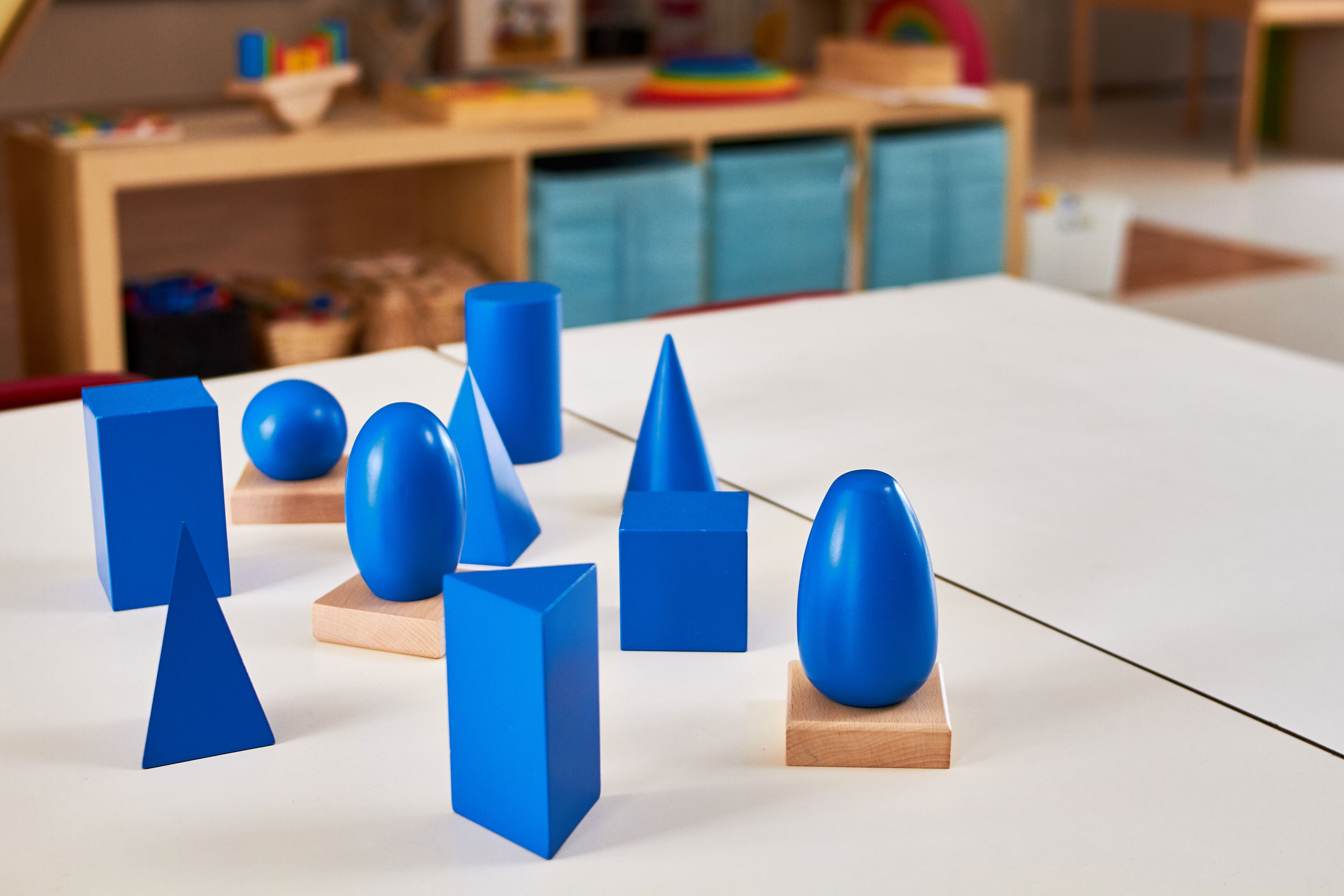
Our Three Campuses
ASHTON ROAD CAMPUS
Age 12 months through Grade 6
5237 Ashton Road, Sarasota, FL 34233
Ph 941-922-4949, Fax 941-922-7660
LAKEWOOD RANCH CAMPUS
Grades 7 – 12
5481 Communications Pkwy, Sarasota, FL 34240
Ph 941-222-0763, Fax 941-922-7660
GLOBAL CAMPUS
Grades 7 – 12
Ph 941-222-0763, Fax 941-922-7660
Montessori 101 — https://indd.adobe.com/view/782ebefa-f22c-4ae7-9930-af5721439276
